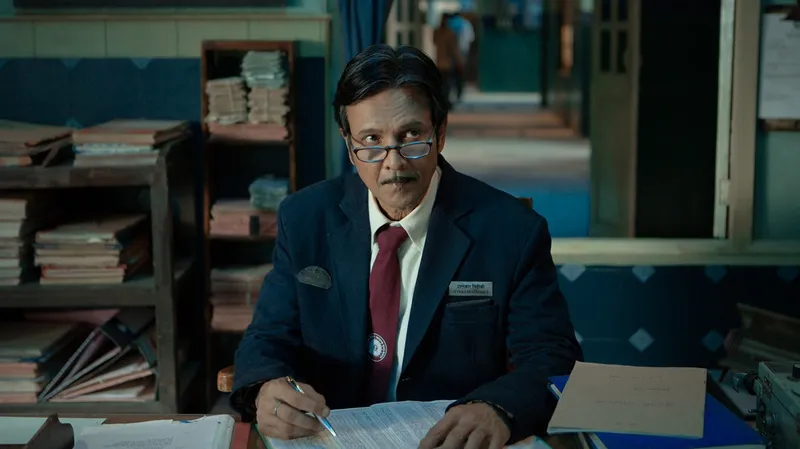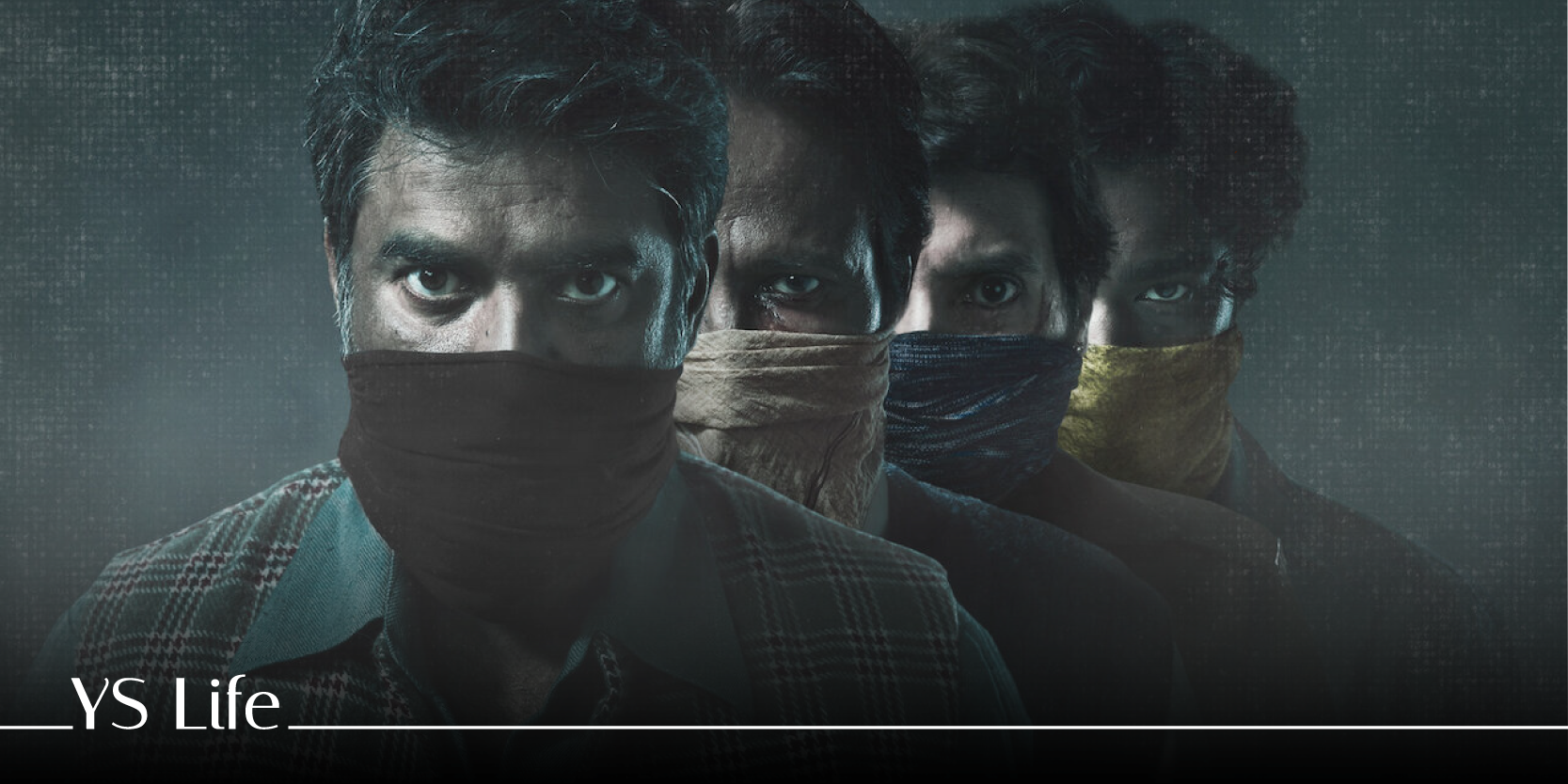The Railway Men review: A powerful retelling of the bravery of rail employees during the Bhopal Gas Tragedy
Without forced neutrality, The Railway Men packs a gut punch by highlighting the cost to human lives of governmental and corporate negligence.
Starring: R Madhavan, K K Menon, Divyenndu Sharma, Babil Khan, Juhi Chawla, Divyendu Bhattacharya, Mandira Bedi, Sunny Hinduja, and Raghuvir Yadav, among others.
In 1984, India witnessed the world’s largest industrial disaster—The Bhopal Gas Tragedy.
So far, documentaries like Bhopali (2011), One Night in Bhopal (2004), and an independent film, Bhopal Express (1999), have covered this shocking incident in a credible manner.
But Netflix’s The Railway Men places the sheer scale and impact on thousands of human lives centre stage when many would not have known of this colossal governmental and industrial failure.
Produced by YRF Entertainment and backed by a relatively new team of creators (director Shiv Rawail and writer Aayush Gupta), it delivers a poignant, dramatic, and cinematic retelling of the human story—tragedy and triumph—of that night.
Before we dive into the series, a background of the Bhopal Gas Tragedy is essential. In the winter of 1984, about 45 tonnes of methyl isocyanate—a poisonous gas that works like cyanide—leaked from the insecticide plant of the American corporation Union Carbide based in Bhopal, Madhya Pradesh.
The gas drifted over densely populated neighbourhoods around the factory of the poor and lower-income group residents, most of whom worked at the plant. The leak killed around 15,000 to 20,000 residents; gave over half a million people permanent respiratory problems, loss of eyesight, and harmed children and newborns.
On the night of the incident, panic spread as thousands tried to flee the city. Almost all trains were re-routed or stopped from entering Bhopal junction, as news spread rapidly across the Indian Railways network.
In fact, a brave inspector ran a relief train, ignoring orders from his political masters. Brave railway employees and a handful of courageous civil servants took it upon themselves to provide medical support and emergency help as an incapable government scrambled to isolate Bhopal.
The Railway Men depicts fictional characters adapted from real people who grapple with unprecedented difficulties to put up a super-human fight to save lives. As life in Bhopal goes on as usual before the accident, parallel storylines place each character in their specific stories.
Station master Iftikaar Siddiqui (KK Menon) and the new locomotive yard employee (Babil Khan) start work on a busy night shift as the Ijtema pilgrimage crowd is set to enter the city, while a sweeper from the railway station, Vijaya, is getting ready to for her daughter’s wedding.

Siddiqui’s son aspires to join the Carbide factory for money and growth, ignoring his parents’ advice to join a stable job in the Railways. A committed local journalist, Kumawat (Sunny Hinduja)—adapted from real-life journalist Rajkumar Keswani—is seeking details and documents to establish that the Carbide plant is a ticking time bomb—one that will wipe his city clean.
Inside the Carbide factory, chaos and disorder seep into functioning as inadequately trained workers are put in charge of handling dangerous maintenance procedures. Aware of this upcoming danger are senior plant employees Kamruddin (Dibyendu Bhattacharya) and Khan.
Meanwhile, a smart railway robber with a catchy name, Express Bandit (Divyenndu Sharma), enters the junction to hit a payday, but destiny has other plans.
As the gas leak spreads across the city, human tragedy unfolds through individual characters. A wedding in a colony is disrupted as bodies pile up. Brave men stand in the way of uncontrollable death, staving off the disaster and minimising its reach. Their motive is simple—to save the lives of people. Their actions are magnified in impact as one sees their humongous efforts through painful, tear-stained eyes, and parched, burnt throats and lungs.
A simplicity surrounds the central characters as the story revolves around people stuck at the Bhopal junction. Most characters that saved lives also go beyond their religious or regional identities, with minor characters taking the lead—a subtle statement from the makers.
A brave and committed Rati Pandey (R Madhavan), a general manager in the Railways, breaks through red tape and gets volunteers at a neighbouring station to prepare a relief train. His boss, DG personnel, played by Juhi Chawla, also joins the effort—both risking their jobs despite politicians backing out from rescue efforts.
The plot adds layers of fiction and filmy finesse to scale up the impact of its lead characters. Some dialogues and introductions of its unsung heroes are similar to a mainstream film, but their actions reflect their courage under pressure.

The makers also introduced a decent subplot in the inbound Gorakhpur Express train about the violence of political decisions to showcase the ineffectiveness of the government. However, this concerted effort to make a statement doesn’t feel preachy for the most part.
Children, women, men, and animals—the poisoned gas spared none, and director Shiv Rawail created moving sequences, keeping the camera on a person or a scene to make its tragedy seen in stark relief. Rawail’s ability to tackle the parallel storylines effectively stands out.
Writer Aayush Gupta has adapted testimonials and literature around the Bhopal Gas Tragedy to capture a horrific moment in India’s recent past. While the makers call The Railway Men an untold story, it is not quite untold as films and documentaries have tried to document the gas leak and its consequences.
But this series is powerful.
The music score by Sam Slater has a haunting and timebound feel that gets under your skin. Visual effects used are not qualitative, but they convey the sense of urgency that drives its plot.
The four-part mini-series closes with synced images of real photographs from the days after the tragedy. Making a series on a significant scale and focusing on a contentious historical moment is uncommon in Indian entertainment.
While its makers have done a fine job, The Railway Men stands out for its excellent performances. Menon—also the leading man of Bhopal Express in 1999—delivers the most powerful performance.
Madhavan and Sharma deliver solid performances, while Hinduja and Bhattacharya make an impact with limited screen time. Their performances make their pain and victory in survival come to life in a story that comes alive in human suffering.
While some of its length could have been trimmed, telling this story was important on a mainstream grand scale. People in Bhopal are still fighting for justice and compensation, more than 30 years after the disaster, and their story needed this spotlight.
Rating: 4.5/5
(The article was updated to correct a typo)
Edited by Suman Singh








![[Funding alert] Prescinto raises $3.5 M in seed round led by Venture Catalyts and Inflection Point Ventures](https://images.yourstory.com/cs/2/11718bd02d6d11e9aa979329348d4c3e/Imagewf2p-1607509774638.jpg)
![[Funding alert] Gurugram-based Bolo Indya raises $400,000 led by Inflection Point Ventures](https://images.yourstory.com/cs/2/0a385fc03e6011e999df3d1594bbde2c/Imagegtfr-1607249104762.jpg)
![[Funding alert] Digital lending platform Revfin raises Rs 100 Cr in debt round](https://images.yourstory.com/cs/2/31ee0510ca7c11eba975c529dced399e/MalvikaCopyofImageTagging52-1647263527421.png)
